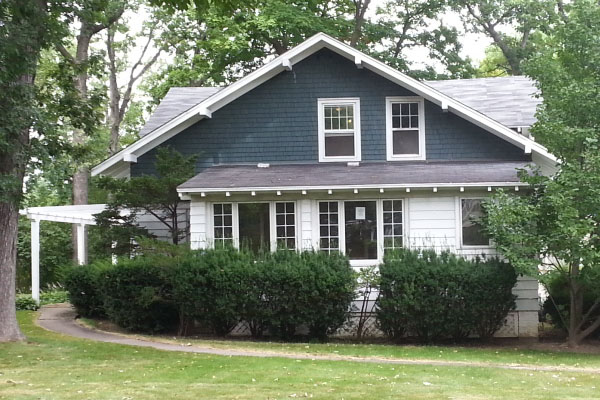
Photo: Hyperion Homes/mutual realty llc
You could start out as a renter—and eventually be an owner—of a home like this Highland Park property found on the Hyperion Homes site.
Carol Plodzien and Geri Brongiel have both survived cancer in the past decade, but not without missing a combined eight years of work. Not surprisingly, they ran up a load of debt and struggled to pay for their McHenry County home. With its value down by half from where it was about six years ago, the house had become an albatross the women knew they’d need to short-sell—which would foul up their credit even more and block them from buying another home.
But the couple’s real estate agent, Bob Untch, knew about a program that Plodzien calls “the light at the end of the tunnel.”
Hyperion Homes, launched in mid-2012 and Chicago-based, has an innovative take on the current rage for investing in single-family homes for rental: Rather than buy up houses and then offer them to renters, it lets credit-damaged customers who hope to get back into homeownership pick out the homes they want, and then buys the homes for them to live in as renters. When their financial footing is more solid, the renters can then buy the home from Hyperion or opt not to.
Sharon Park, a Hyperion principal, calls the program “lease with a purchase right.” Untch calls it “pure amazing.”
Park says a fundamental piece of the strategy is that, rather than buy homes and hope renters want it, Hyperion only buys a house that a customer has asked it to buy. The house won’t sit vacant on the rental market, and Hyperion knows it’s desirable to at least one renter. It’s also a win for the renter. As Plodzien says: “We were able to look at the entire market of homes and decide what we wanted. We can move in now [as renters], and in three or five years, when we pay off our debts, we can become homeowners again without moving again.”
Next week, on October 1, the women will move in as renters in a home elsewhere in McHenry that they picked and Hyperion bought. Plodzien didn’t want to disclose prices, but said the purchase price of the new home is about the same as the present, post-bust value of their old address. They can handle that size payment, but got out from under the larger payment on their older, boom-era mortgage.
Hyperion is a for-profit business; billionaire Sam Zell is either a backer or the backer, according to an article in the Atlantic that came out last week. But Park says its founding principles include not only making money but doing some social good. “We recognize that there are a lot of folks who have had a foreclosure or a short sale or other single credit event [such as major medical expenses or a job loss],” Park says “but who have good, stable sources of income and would otherwise be able to obtain a mortgage.”
She says Hyperion examines a customer’s credit more “holistically” than a lender would, and goes with people who seem capable of proceeding past the one big black eye they’ve suffered.
Hyperion is not a lender; it’s a landlord. Park did not say whether the firm pays cash or finances its home purchases, but either way, it purchases the selected home and then rents to the residents who picked it. When they are ready to buy, they’ll have to arrange their own financing.
Since its first Chicago-area purchase in November 2012, Hyperion has bought more than 200 houses for its customers, Park says, with an average price in the $250,000 range. (The firm is also operating in Texas and Colorado, but hasn’t bought anything in those places yet.) The primary limitation on what Hyperion will buy is that it has to be in a good school district. “We think there’s a strong correlation between the schools and home price appreciation,” Park says. Steady home values will mean that whether the rental customer ends up buying the house or Hyperion has to sell it because the renter opted not to buy, the owner after Hyperion will be in an investment “that is moving up in price, not down,” she notes. Of course, the firm also derives a financial benefit from buying in places where appreciation is better.
The firm’s portfolio is in Chicago-area suburbs where the high schools are well-ranked, Park says. It hasn’t bought anything in Chicago because “it’s hard to link geography with schools in the city proper,” she says, referring to the fact that CPS students are likely to go to any of a number of schools, not just the one they live nearest.
While renting, the customer has a fixed annual rent increase of 3.75 percent, and there’s a schedule provided that shows how much Hyperion will sell for in any given year during the rental term. “You know what your costs are going to be while you’re [cleaning up] other debts,” Park says.
That was a big draw for Plodzien and Brongiel. Now both semi-retired and working part-time, they wanted to be able to plan their financial recovery and re-entry into homeownership.
“We’re survivors,” Plodzien said. “We’re moving on.”



Comments are closed.